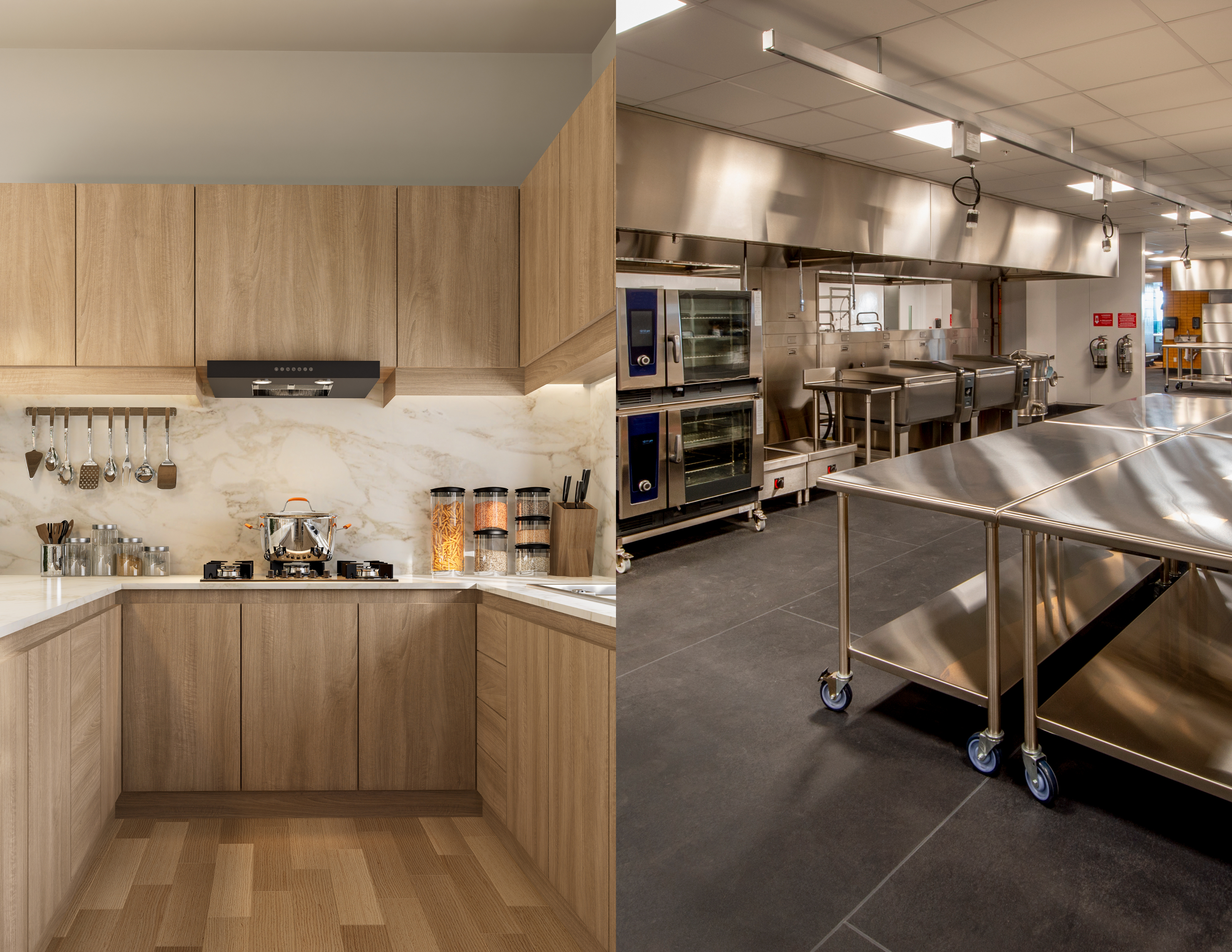
The biggest difference when designing a residential vs commercial kitchen are the laws surrounding each space. Commercial kitchens have much stricter standards due to the resale of food and the liability.
Laws and Regulations

Commercial kitchens are governed by local health departments, fire codes, and safety standards, which enforce strict guidelines for food handling, fire safety, and employee training. Using a residential kitchen designer could cause major problems including being shut down over hidden mistakes and incorrect finishes in your kitchen.
Residential kitchens, while subject to building codes and regulations, don’t face the same extensive oversight. Home kitchens are primarily designed for personal use and aren't subject to the same operational standards that govern businesses. Using a commercial kitchen design in a home may result in a cold and unappealing kitchen often bringing down the value of your home.
Equipment and Finishes

Residential kitchens are equipped with appliances like stoves, ovens, and refrigerators that cater to a typical home cook's needs. Finishes and materials selected for a typical residential kitchen are more aesthetically driven and typically not exposed to the high use and harsh environments.
In commercial kitchens, however, the equipment is industrial-grade: larger ovens, fryers, and specialized tools for bulk cooking and quick service. The durability and capacity of commercial equipment are built to withstand high-volume use. Simply put a commercial kitchen needs to be designed for functionality first and the finishes reflect that. While durability is a major factor in commercial kitchen material selections also must take into account hygiene both during and after service as these are a key component compliance with health authorities as well as operational success. Most commercial kitchens have stainless finishes on just about everything!
Space & Layout

Residential kitchens are often smaller, and designed to suit daily meal preparation for a family. The layout is focused on comfort and accessibility, with an emphasis on personal style. A designer will often sit down with the client and design the kitchen to fit the exact wants for their lifestyle.
On the other hand, commercial kitchens are large and meticulously planned for efficiency. Personal preferences are not usually given as the kitchen isn't usually owned and run by one single individual. In these spaces, layout is all about maximizing workflow, with designated areas for cooking, prep, washing, and storage to ensure smooth operations during peak hours.
Experience & Education

Residential designers often come through the process of interior design and have studied more deeply into the different aspects of design. Residential designers have a broader view of the things that impact a residential kitchen from both a theme and how the residence may work and flow around the kitchen space. Most designers are also trend forward as the designs for residential kitchens is constantly changing.
On the other hand commercial kitchens have stayed the same with slower changes to new trends. A large number of commercial kitchen designers have previous experience working in commercial kitchens and are more familiar with the elements and flow of a multi-person kitchen that typically has specific stations for a set function or part of the menu. They are often retired chefs or others who have been working in the commercial kitchen industry and understand how the equipment works and what to expect.
____________________________________________
Every kitchen is unique and a well-designed kitchen should take into account your specific needs as well as make your life better both functionally and in the case of a commercial kitchen lead to higher staff moral and job satisfaction.
Good kitchen design includes both art and science. If you are looking for a commercial kitchen designer please reach out and one of our team will be happy to learn more about your project and what we have available for design packages.
